Flowers come in all shapes, sizes, and colors, and their names are just as diverse. One such example is flowers name starting with K. One of the most popular flowers starting with “K” is the Kangaroo Paw, which is known for its unique shape and bright colors.
The Kalanchoe is another popular flower, known for its long-lasting blooms and beautiful hues. The Kaffir lily, also known as Clivia, is also a popular choice for gardeners and flower enthusiasts. Another unique flower starting with “K” is the Kalmia, also known as the Mountain Laurel, with its beautiful pink and white blooms. The Knapweed is another stunning flower with vibrant pink and purple hues.
Other notable flowers starting with “K” include the Kolkwitzia, also known as the Beauty Bush, and the Kniphofia, also known as the Red Hot Poker. All of these flowers starting with “K” add a unique and exotic touch to any garden or bouquet.
Flowers Name Starting with K
Kalmia
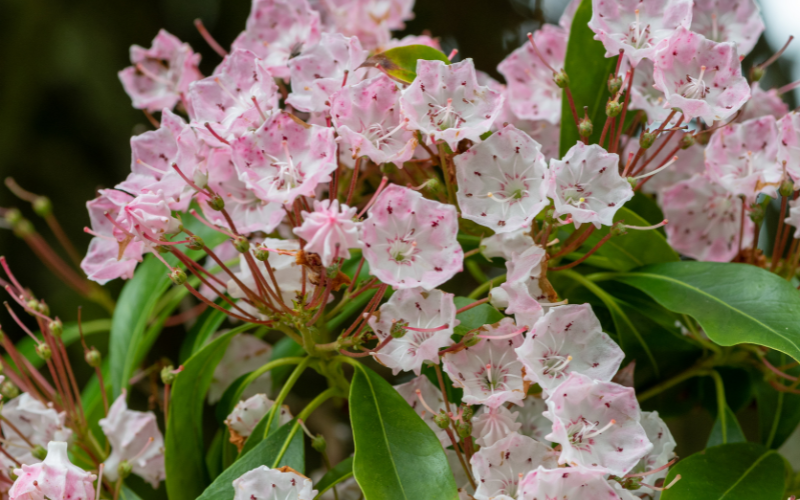
Kalmia is a beautiful flowering plant that is native to North America. It belongs to the heath family and is commonly found on the outskirts of woodlands, along riverbanks, and in open meadows.
The plant produces beautiful flower clusters ranging in color from white to pink to deep red. Kalmia leaves are shiny and evergreen, providing year-round interest in the garden. Its eye-catching flowers and rich leaves make it an eye-catching addition to any garden.
| Scientific Name | Kalmia |
| Native Range | North America |
| Flowering Season | Late spring to early summer |
Kangaroo Paw
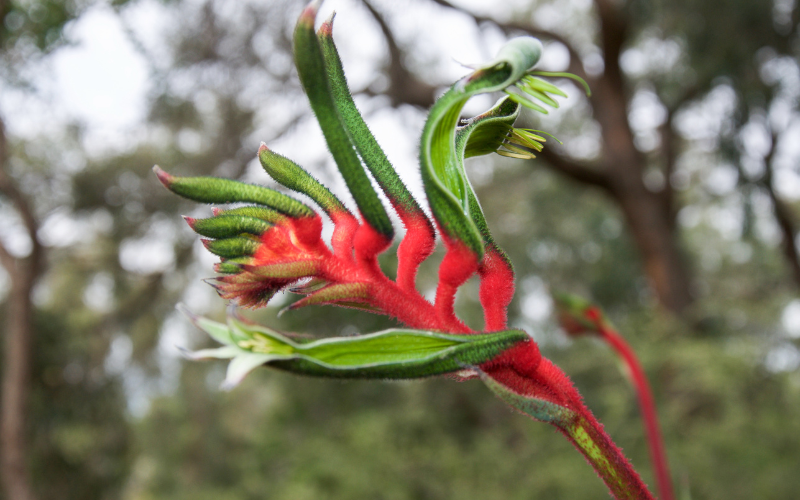
Kangaroo Paw is a beautiful and unique flower native to Western Australia, which has become popular worldwide due to its striking appearance and long-lasting blooms. The flower’s name comes from its unusual shape which resembles a kangaroo’s paw.
The Kangaroo Paw flower comes in a variety of colors including red, pink, orange, and yellow, and the plant itself can grow up to 6 feet tall. Kangaroo Paw is a low-maintenance plant and is highly drought tolerant, making it perfect for hot and dry climates. The flower is also known for its ability to attract hummingbirds and butterflies, adding to its beauty.
| Scientific Name | Anigozanthos |
| Native Range | Southwestern regions of Western Australia |
| Flowering Season | Spring and summer |
King Protea
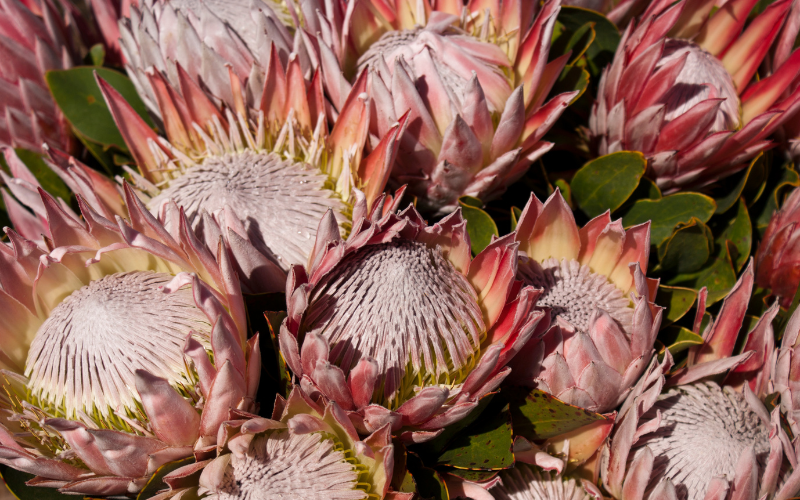
King Protea is a flowering plant that is native to South Africa. Its scientific name is Protea cynaroides, and it is often called the “king of proteas.” The name comes from the flower’s odd shape, which resembles a kangaroo’s paw.
The flower is well known for its large blooms, which can grow up to 12 inches in diameter, and come in shades of pink, red, yellow, and cream. The King Protea is often used in wedding bouquets and decorations because of its unique beauty and versatility. It is also the national flower of South Africa and is a symbol of strength, courage, and diversity.
| Scientific Name | Protea cynaroides |
| Native Range | South Africa |
| Flowering Season | Late winter to early summer |
Kniphofia
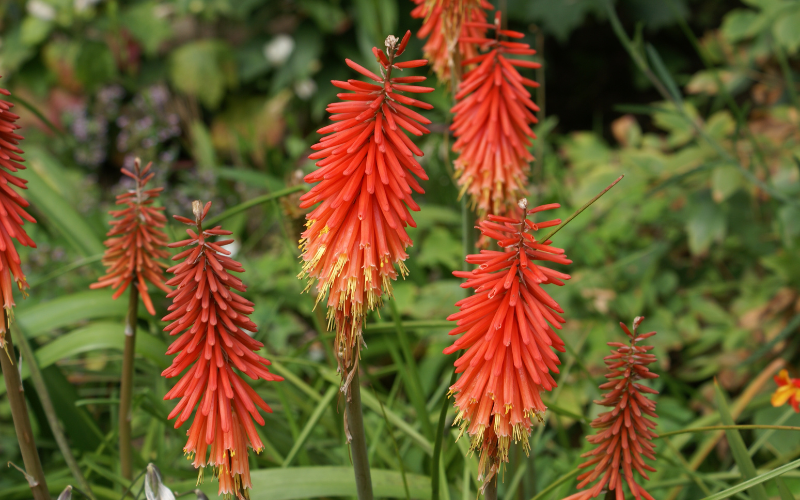
Kniphofia is a beautiful flower. It also known as Red Hot Pokers, is a plant species native to South Africa that has become popular in gardens all over the world. The tall, spiky flowers grow up to 4 feet tall and bloom in shades of red, orange, and yellow, adding a vibrant splash of color to any garden.
Kniphofia is also known for attracting bees and butterflies, making it a great addition to any garden that wants to promote biodiversity. This plant thrives in full sun and well-draining soil and is very easy to care for. It is drought-tolerant and can withstand a range of weather conditions, making it a great choice for gardeners who want a low-maintenance plant.
| Scientific Name | Kniphofia |
| Native Range | South Africa, Lesotho, and Swaziland |
| Flowering Season | Late winter to early summer |
Kolkwitzia
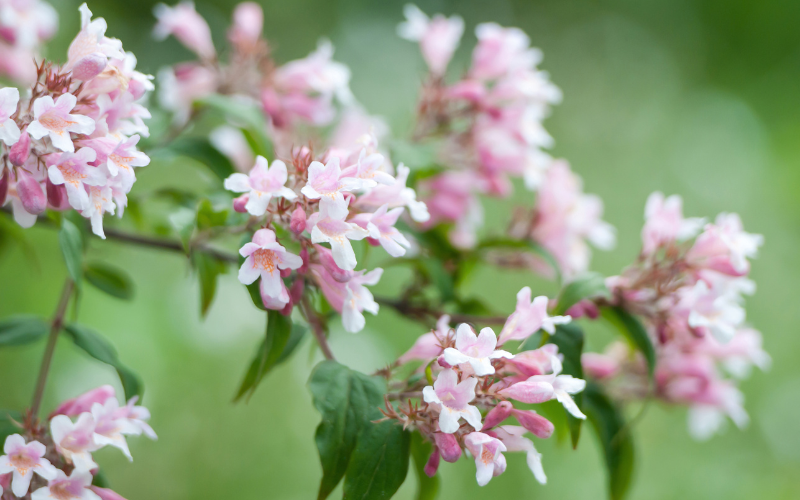
Kolkwitzia is a stunning shrub that is native to China. It is a popular garden plant because of its beautiful pink to purple flowers that bloom in late spring to early summer. The flowers are small, but they are arranged on the shrub as long, arching sprays, creating a stunning display.
It is a low-maintenance shrub that is easy to grow in full sun to partial shade, and it prefers moist, well-drained soil. The leaves of Kolkwitzia are green, and they turn a purple or reddish color in the fall, providing additional interest to this lovely shrub.
| Scientific Name | Kolkwitzia amabilis |
| Native Range | China |
| Flowering Season | Late spring or early summer |
Knautia arvensis
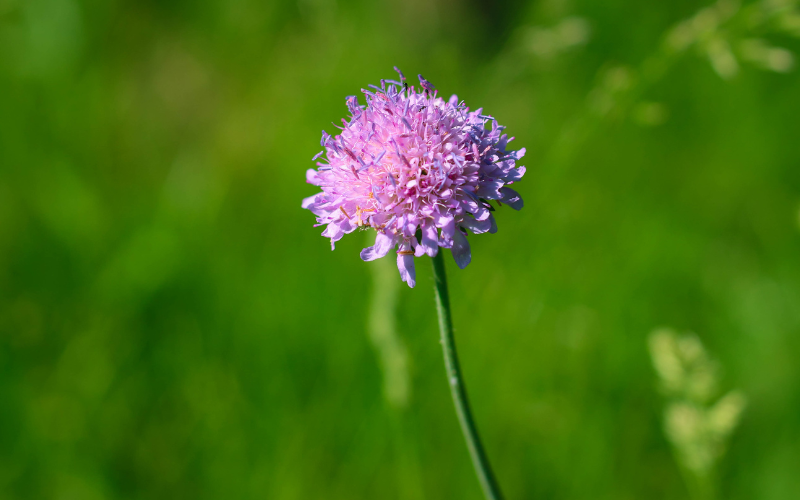
Knautia arvensis is a stunning herbaceous perennial plant that belongs to the honeysuckle family. It is native to Europe and Asia and can be found growing in meadows, fields, and along roadside verges.
The plant can grow up to 90 centimeters in height and has delicate lavender-blue flowers that attract bees, butterflies, and other pollinators. The leaves of the plant are narrow and lance-shaped, while the stems are branched and hairy. Knautia arvensis is a popular ornamental plant in gardens and can be easily propagated by seed or by division of the clumps.
| Scientific Name | Knautia arvensis |
| Native Range | Europe,United Kingdom, France, Germany, and Italy |
| Flowering Season | Late winter to early summer |
Kobus Magnolia
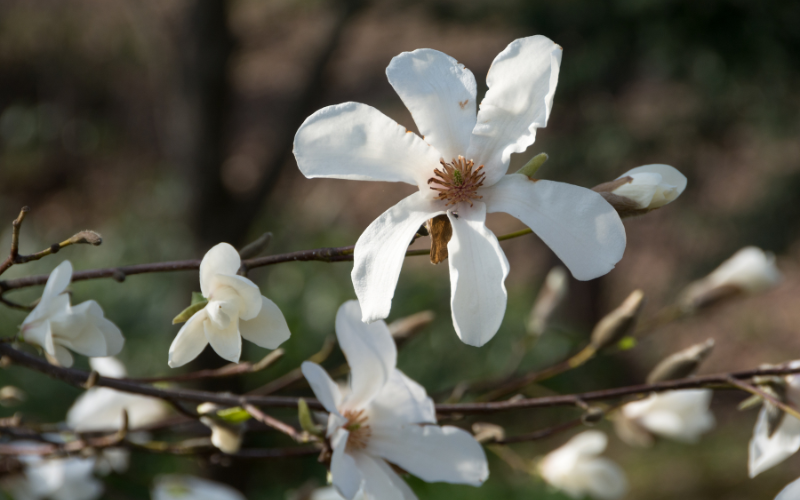
The Kobus Magnolia flower is a beautiful and unique flower that is native to Japan. It is also known as the “star magnolia” due to its star-shaped petals. The flowers bloom in late winter or early spring before the leaves appear on the tree.
The Kobus Magnolia has a lovely scent that is both sweet and citrusy. The flower is often used in floral arrangements due to its striking appearance and beautiful scent. In addition to its aesthetic value, the Kobus Magnolia has medicinal properties and is used in traditional medicine to treat various ailments such as anxiety, depression, and respiratory problems.
| Scientific Name | Kobus Magnolia |
| Native Range | Japan |
| Flowering Season | Late winter or early spring |
Kyushu Meadow Rue
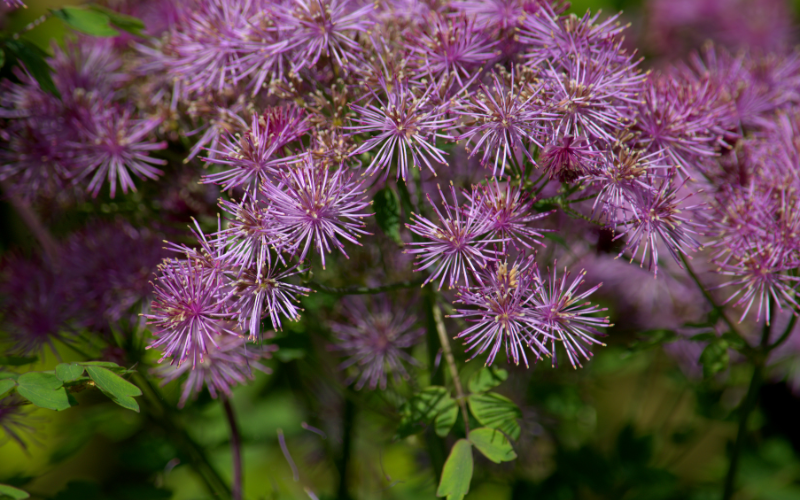
Kyushu Meadow Rue is a beautiful, delicate plant that is native to Japan. Its long, thin stems can grow up to two feet tall, and they are adorned with small, intricate white flowers. With their beautiful, fluffy look and vivid green color, the leaves of the Kyushu Meadow Rue are likewise a sight to behold.
This plant grows in damp, well-drained soil and is ideal for any garden or outdoor space. In addition to its aesthetic appeal, the Kyushu Meadow Rue is also known for its medicinal properties. It has been used in traditional Japanese medicine for centuries to treat a variety of ailments, including digestive issues and high blood pressure.
| Scientific Name | Thalictrum kyushuense |
| Native Range | Japan |
| Flowering Season | Summer |
Kalanchoe
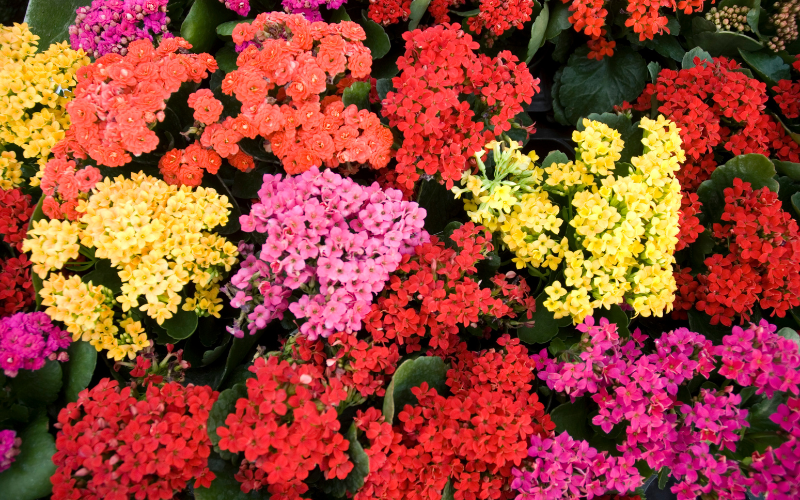
Kalanchoe is a beautiful and versatile plant that is perfect for both indoor and outdoor settings. It belongs to the Crassulaceae family. Kalanchoe is also known for its beautiful, long-lasting blooms that come in a range of colors, including pink, red, orange, yellow, and white.
These plants are easy to care for, making them perfect for novice gardeners. They require plenty of sunlight, but can also tolerate partial shade. Kalanchoe thrives in well-drained soil and should be watered sparingly, allowing the soil to dry out between waterings.
| Scientific Name | Kalanchoe |
| Native Range | Madagascar, Africa, Asia, and parts of the Americas |
| Flowering Season | Winter and spring months |
Keli Flower
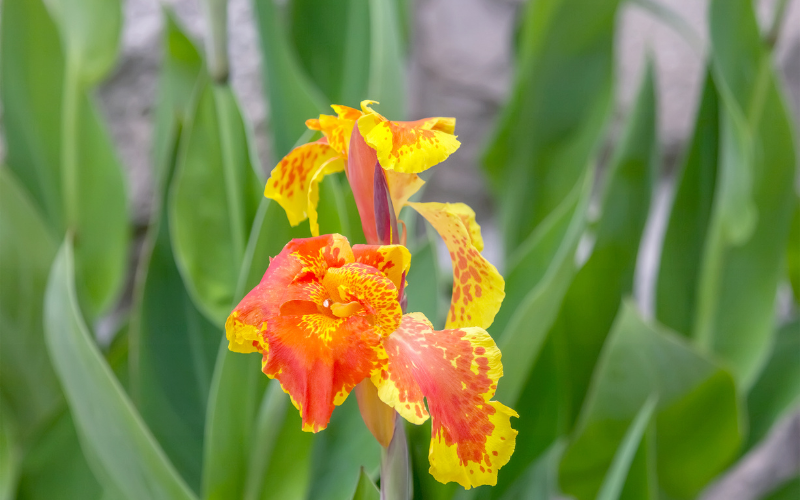
The Keli flower is a rare and exotic flower found in the Western Ghats region of India. It is also known as the ‘Neelakurinji’ flower, which means ‘blue blossoms’ in the Malayalam language.
The Keli plant blooms only once every twelve years, creating a magnificent sight as the entire region is covered in a blue-purple carpet of flowers. The plant grows up to six feet tall and has large leaves with stalks branching out in opposite directions. The flower has a unique shape, with six petals in a bell shape and a long pistil in the center.
| Scientific Name | Strobilanthes kunthiana |
| Native Range | India |
| Flowering Season | Summer |
Knautia-Macedonica
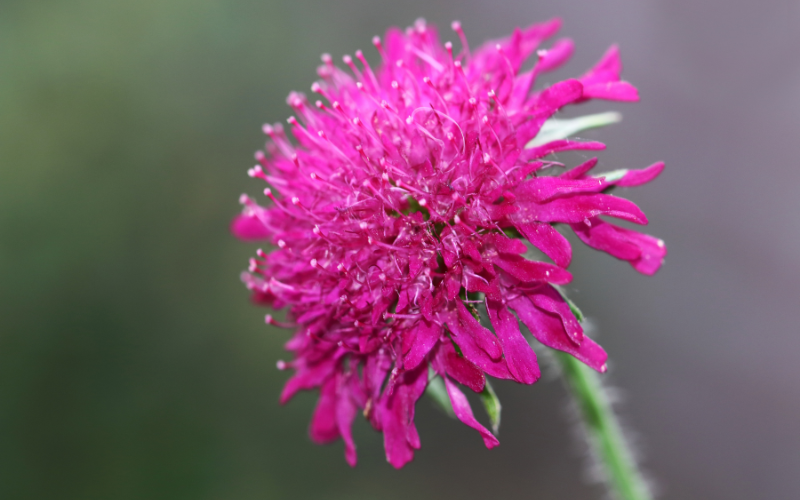
The Knautia macedonica is a stunning flower. It is also known as the Macedonian scabious or the Knautia. They grow to a height of around 2 to 3 feet (60 to 90 cm).
The flowering season for Knautia macedonica typically occurs during the summer months. It prefers well-drained soil that is moderately fertile and slightly alkaline. This plant is relatively low-maintenance once established.
| Scientific Name | Knautia-Macedonica |
| Native Range | Southeastern Europe |
| Flowering Season | Summer |
Kalmia Lacifolia Midnight
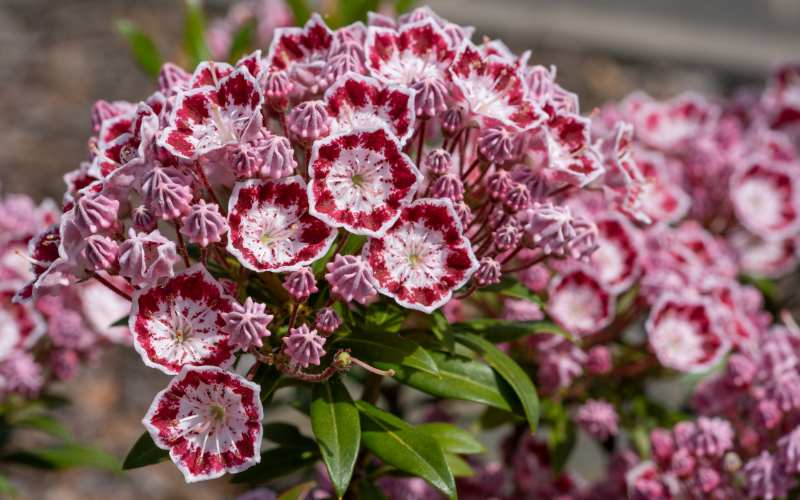
The Kalmia Lacifolia Midnight flower is a truly attractive and intriguing plant. It is also known as the Mountain Laurel. The Midnight flower earned its name due to its tendency to bloom during the twilight hours.
This evergreen plant not only showcases its beautiful flowers but also boasts glossy, leathery leaves that provide year-round interest. It is a relatively low-maintenance plant, making it a popular choice for both experienced and novice gardeners alike.
| Scientific Name | Kalmia latifolia ‘Midnight’ |
| Native Range | North America |
| Flowering Season | Late spring to early summer |
Kniphofia-Rooperi
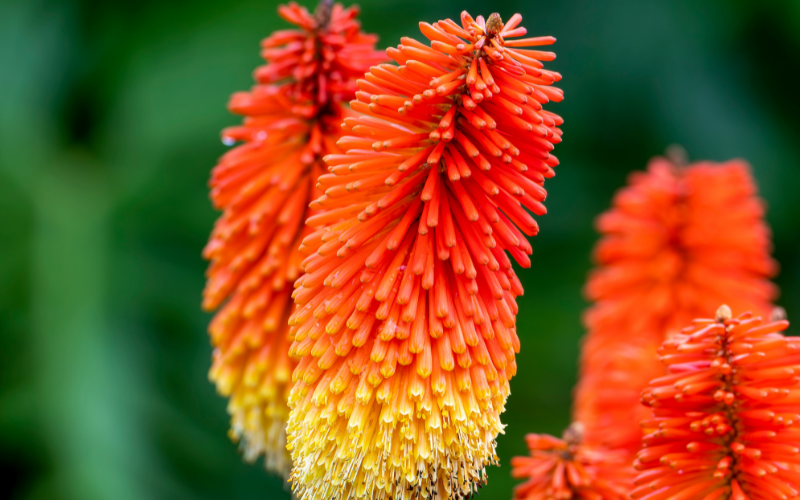
The Kniphofia-Rooperi is a striking and vibrant flower. It is also known as the red hot poker or torch lily. It is native to South Africa. The Kniphofia-Rooperi is known for its brilliant and intense red-orange color, creating a stunning visual display in any garden.
It also attracts butterflies, and bees making it a delightful addition. The flower spikes can reach a height of 4 to 5 feet (1.2 to 1.5 meters), creating an impressive display. Kniphofia rooperi usually blooms in the summer months, from late spring to early summer.
| Scientific Name | Kniphofia rooperi |
| Native Range | South Africa |
| Flowering Season | Summer |
Kaffir-Lily-River
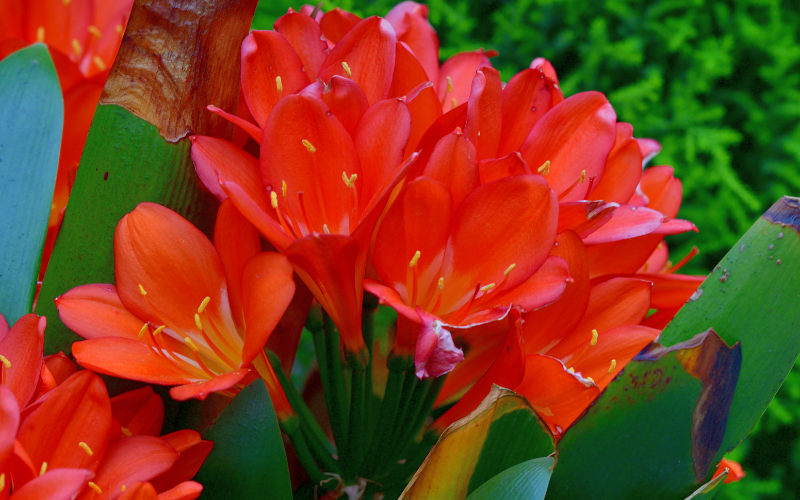
Kaffir-Lily-River is a beautiful flower. It is scientifically known as Clivia miniata. It is Native to South Africa. Kaffir-Lily-River typically blooms in late winter or early spring.
The plant typically reaches a height of about 1 to 2 feet (30 to 60 cm), with the flower stalks rising slightly higher. Clivia miniata is a relatively low-maintenance plant. Clivia miniata is a slow-growing plant and does not require frequent repotting.
| Scientific Name | Schizostylis |
| Native Range | Southeastern regions of South Africa |
| Flowering Season | Late summer to early autumn season |
Kolkwitzia-Dream-Catcher
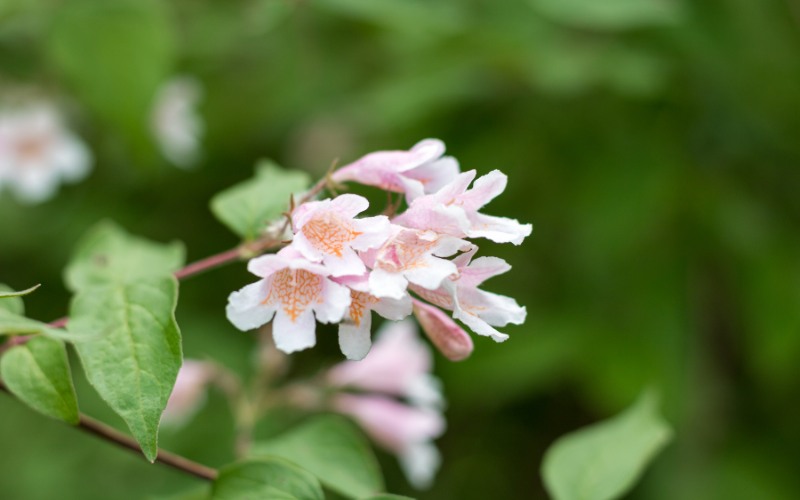
Kolkwitzia-Dream-Catcher is a beautiful flower. The flowers are typically pink or light mauve in color and have a tubular shape with flared petals.’Dream Catcher is a compact and rounded plant that typically grows to a height of 4 to 6 feet (1.2 to 1.8 meters) with a similar spread.
Kolkwitzia-Dream-Catcher is generally low-maintenance. This flower has become a symbol of hope and inspiration, reminding us to never stop dreaming and to always believe in the power of our dreams.
| Scientific Name | Kolkwitzia amabilis |
| Native Range | China |
| Flowering Season | Late spring to early summer |
Kaffir Lily
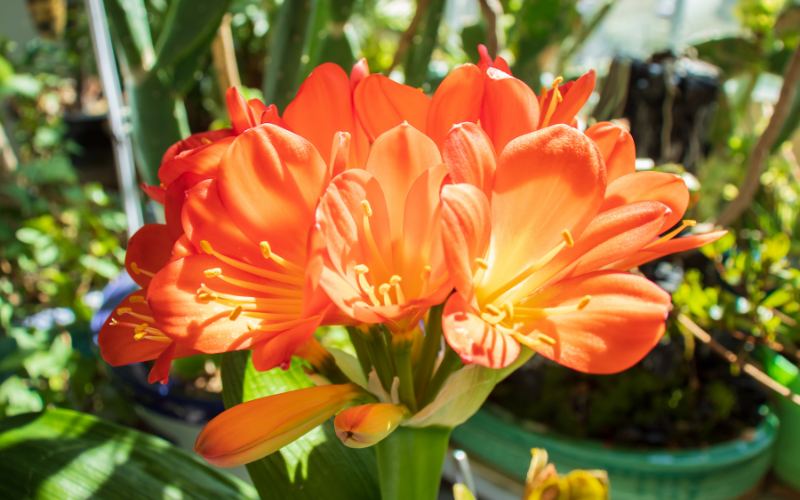
The Kaffir Lily is a stunning flowering plant. It is also known as Clivia. Its delicate and vibrant flowers, which come in shades of orange, red, and yellow.
It is native to South Africa, and the Kaffir Lily is a popular choice for gardens. It requires minimal care and is known for its hardiness and resilience. The plant produces its spectacular blooms during the spring and early summer.
| Scientific Name | Clivia miniata |
| Native Range | South Africa |
| Flowering Season | Late winter to early spring |
Kangaroo-Paws-Yellow-Australian
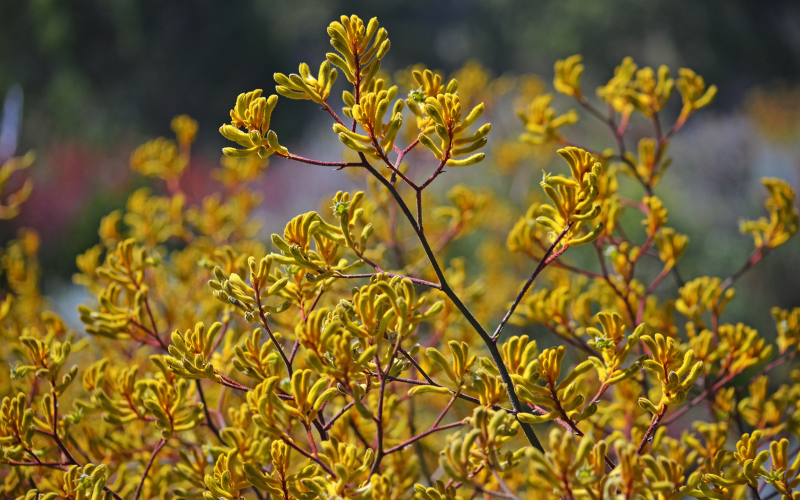
Kangaroo Paw is one of the most stunning flowers. It is native to Australia. The flower gets its name from the shape of its blooms, resembling the paws of a kangaroo. Kangaroo Paws generally bloom from late spring to summer.
The plants can vary in height, with some species reaching around 3 to 4 feet (0.9 to 1.2 meters) tall. These flowers are not only visually appealing but also serve an important ecological purpose. They attract various bees and birds, with their nectar-filled blooms.
| Scientific Name | Anigozanthos |
| Native Range | Australia |
| Flowering Season | Late spring to summer |
King’s Mantle
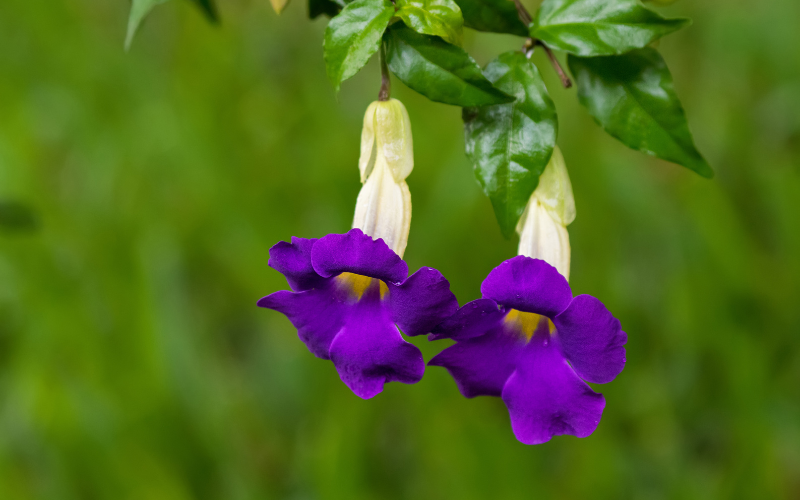
King’s Mantle is a beautiful flower. It is scientifically known as Thunbergia erecta. It is native to tropical regions of Africa and Asia. The King’s Mantle flower comes in a variety of purple, pink, white, and yellow.
It attracts butterflies and bees. The King’s Mantle flower is relatively easy to grow and maintain. With proper care and attention, this majestic flower can bloom continuously throughout the summer.
| Scientific Name | Thunbergia erecta |
| Native Range | Africa and Asia |
| Flowering Season | Summer |
Kunzea
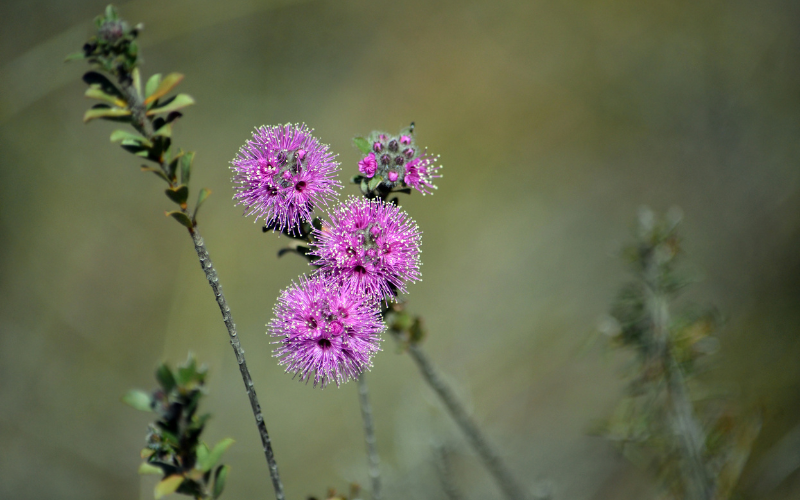
The Kunzea flower is a stunning and unique bloom. It is native to Australia and New Zealand. This flowering plant belongs to the Myrtaceae family. The Kunzea flower features small petals in shades of white, pale pink, or lavender, creating a mesmerizing display of color.
The flower colors can range from white and cream to various shades of pink and purple. Kunzea flowers typically bloom during the spring and summer months.
| Scientific Name | Kunzea |
| Native Range | Australia and New Zealand |
| Flowering Season | Spring and summer |
Kohlrabi
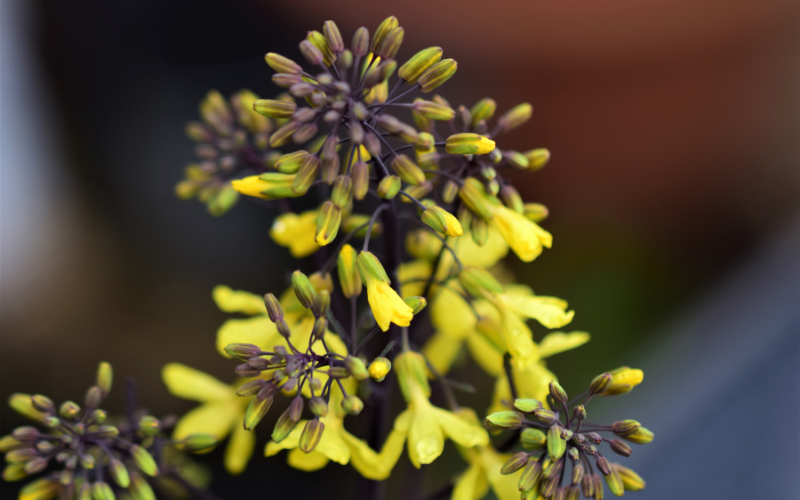
Kohlrabi is a beautiful flower. The flowers of kohlrabi are small, usually around 1/2 to 1 inch (1.3 to 2.5 cm) in diameter, and have four petals. The color of the flowers can vary but is commonly white or pale yellow.
These flowers typically bloom in late spring or early summer, showcasing clusters of small, star-shaped blooms. They also attract bees and butterflies.
| Scientific Name | Brassica oleracea var. gongylodes |
| Native Range | Western Europe, including the British Isles, France, and Spain |
| Flowering Season | Spring or early summer |
Kiwi
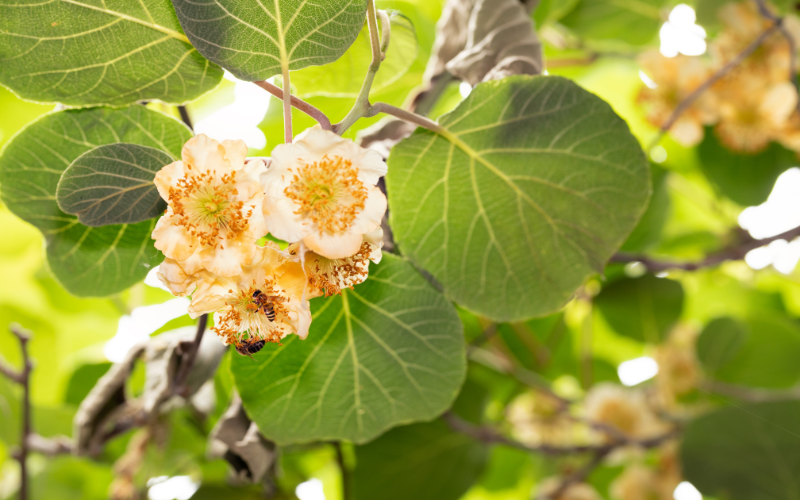
The kiwi is a fascinating and visually stunning flower. It is also known as the Actinidia deliciosa. It is native to China. Kiwi flowers are relatively small and are typically white or cream-colored.
Kiwi flowers typically bloom in the spring. This unique flower blooms on a woody vine that can reach impressive heights. The kiwi flower in its full bloom is a truly mesmerizing experience, showcasing the beauty and intricacy of nature’s design.
| Scientific Name | Actinidia |
| Native Range | China and Taiwan |
| Flowering Season | Spring |
Kolkwitzia Dream Catcher
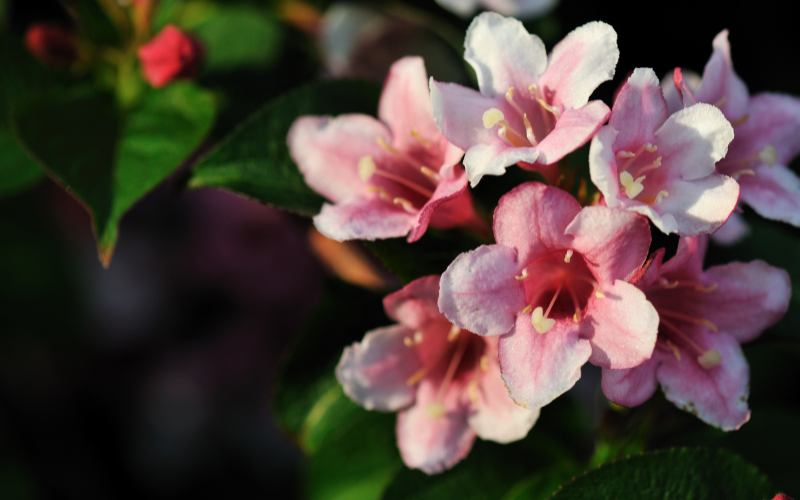
The Kolkwitzia Dream Catcher is a stunning and unique flower. It is also known as the Beautybush. The Dream Catcher Beautybush produces small, bell-shaped flowers that are pale pink to light pink in color.
The Kolkwitzia Dream Catcher Beautybush typically blooms in the spring. It can reach a mature height of around 6 to 10 feet (1.8 to 3 meters) and has a similar spread.
| Scientific Name | Kolkwitzia amabilis ‘Maradco’ |
| Native Range | Asia |
| Flowering Season | Spring |
King Solomon’s Seal
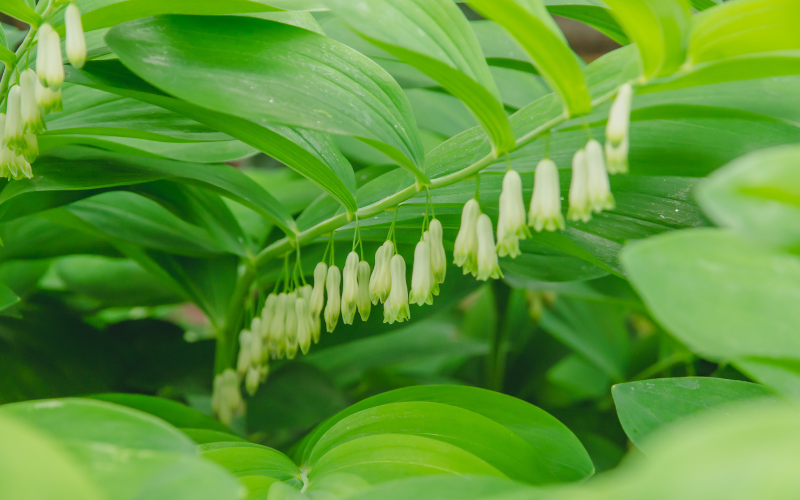
King Solomon’s Seal is a beautiful flower. It is scientifically known as Polygonatum biflorum. The color of the flowers can vary depending on the species and variety, with shades ranging from white to greenish-white or pale yellow.
King Solomon’s Seal typically blooms in late spring to early summer. It prefers moist, well-draining soil and thrives in dappled sunlight or partial shade.
| Scientific Name | Polygonatum |
| Native Range | Eastern and central North America |
| Flowering Season | Spring |
Kangkung
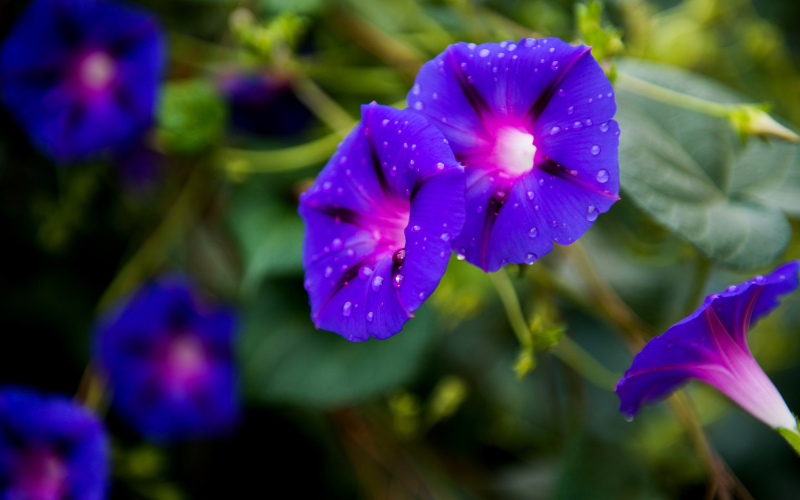
Kangkung is a unique and versatile flower. It is also known as water spinach or morning glory. Kangkung is commonly found in Southeast Asian cuisines.
Kangkung flowers are relatively small and inconspicuous, usually white or pale pink in color. It is a fast-growing plant that thrives in waterlogged or moist environments, making it well-suited for aquatic cultivation.
| Scientific Name | Ipomoea aquatica |
| Native Range | Asia |
| Flowering Season | Late spring to summer |
Kidney vetch
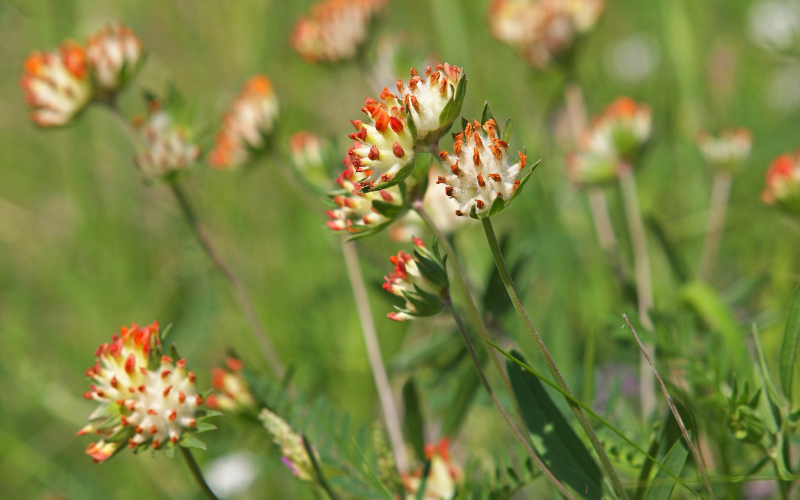
Kidney vetch is a beautiful flower. It is native to Europe and parts of North Africa. The flowers are usually a shade of yellow, ranging from pale to bright.
Kidney vetch typically blooms in the spring and summer months. It is known to attract a wide range of pollinators, such as bees and butterflies. Kidney vetch is often found in dry grasslands, rocky areas, and coastal habitats.
| Scientific Name | Anthyllis vulneraria |
| Native Range | Europe, Asia, and North Africa |
| Flowering Season | Spring to Summer |
Kurume Azalea
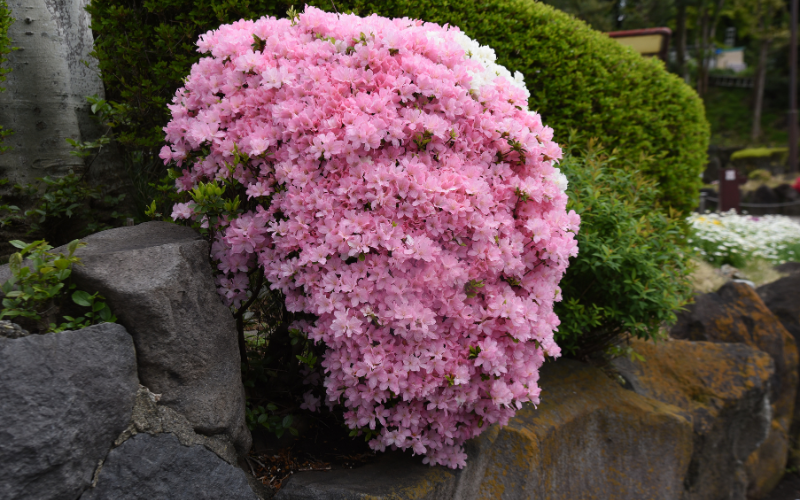
The Kurume Azalea is a stunning flower. It is also known as Rhododendron kurume. It is native to Japan. It comes in a variety of flower colors, including shades of pink, purple, red, and white. It is typically in the spring months. They thrive in partial to full shade but can tolerate some morning sun.
These gorgeous flowers may bloom regularly and provide a visually appealing display with proper care and maintenance, including frequent pruning and watering.
| Scientific Name | Rhododendron obtusum var |
| Native Range | Japan |
| Flowering Season | Spring and Summer |
Korean Lilac
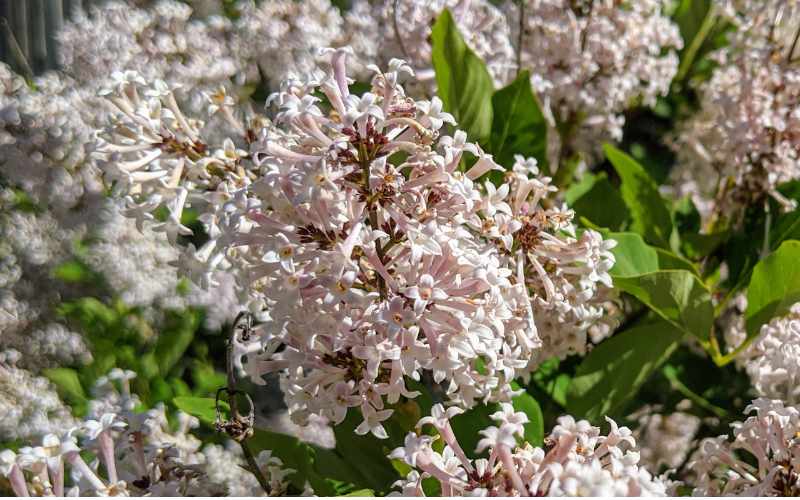
The Korean Lilac is a beautiful and fragrant flower. It is also known as Syringa meyeri. It is native to Korea and China. The Korean Lilac is known for its compact size, typically reaching a height of around 4 to 6 feet, making it a perfect choice for small gardens or container planting.
The flowers are typically lilac or lavender in color, but there are also varieties with white or pink flowers. It typically blooms in late spring to early summer.
| Scientific Name | Syringa meyeri |
| Native Range | Northern China and Japan |
| Flowering Season | Summer |
Korean Mint
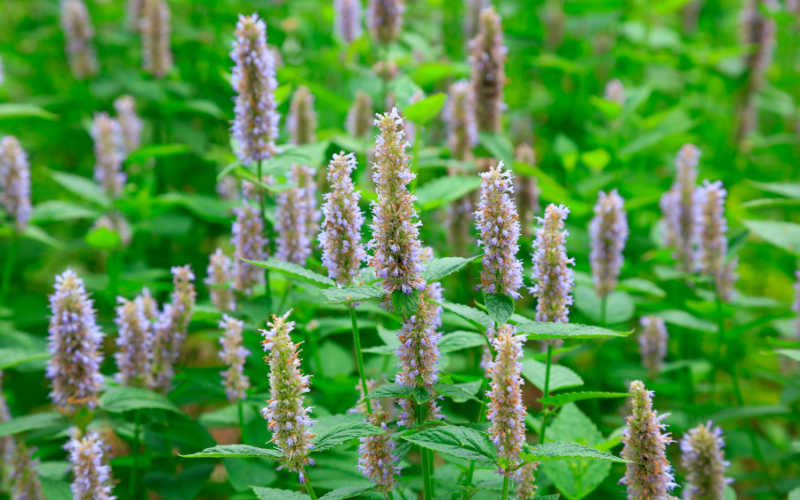
Korean Mint is a lovely flower. It is scientifically known as Agastache rugosa. It is native to East Asia. Korean Mint produces spikes of tubular flowers that are typically lavender, purple, or pink in color.
It typically blooms in the late summer to early autumn. It thrives in well-drained soil and prefers full sun to partial shade.
| Scientific Name | Agastache rugosa |
| Native Range | East Asia |
| Flowering Season | Summer |
Korean Fire Camellia
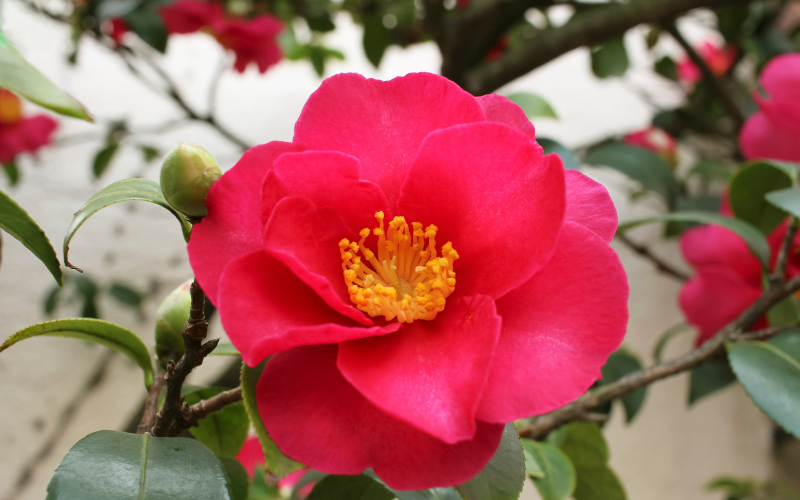
The Korean Fire Camellia is a stunning flower. It is scientifically known as Camellia japonica. It is native to Korea. The flowers are typically 2 to 5 inches (5 to 13 cm) in diameter.
The Korean Fire Camellia comes in a wide range of colors, including various shades of pink, red, and white. They bloom from late winter to early spring. It prefers well-draining, acidic soil and partial shade to protect its flowers from direct sunlight.
| Scientific Name | Camellia japonica |
| Native Range | Korea |
| Flowering Season | Late Winter to Early Spring |
Korean Dogwood
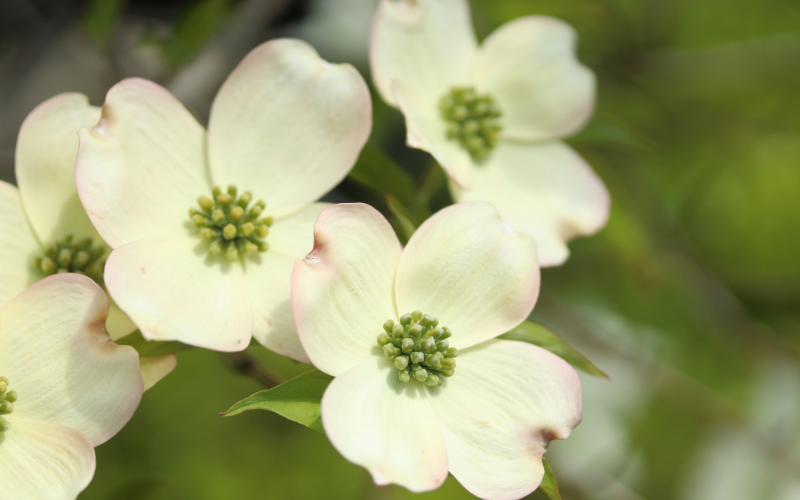
The Korean Dogwood is a lovely flower. It is also known as Cornus kousa. It is native to Korea and other parts of East Asia. The Korean Dogwood typically blooms in late spring to early summer.
The Korean Dogwood flower is characterized by its delicate and star-shaped petals that form a beautiful display of creamy white or pink hues. It thrives in partial shade to full sun.
| Scientific Name | Cornus kousa |
| Native Range | East Asia |
| Flowering Season | Late spring to early summer |
Korean Chrysanthemum
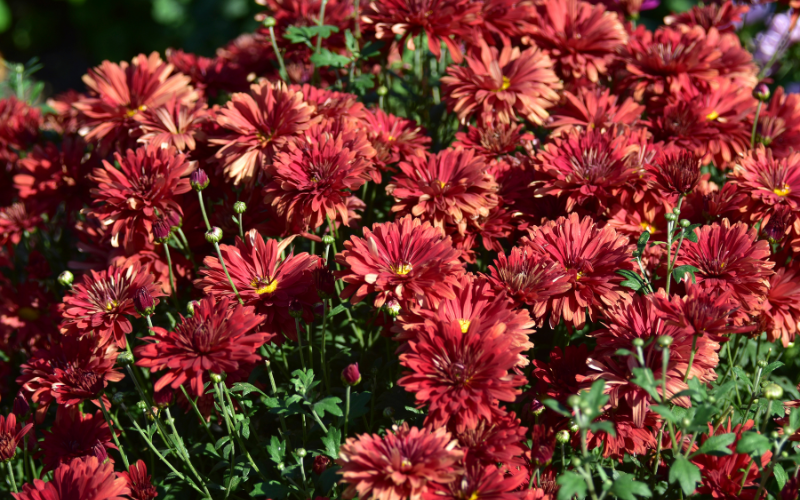
The Korean Chrysanthemum is an eye-catching flower. It is scientifically known as Chrysanthemum indicum or Chrysanthemum morifolium. It comes in a wide range of colors, including shades of white, yellow, orange, red, and pink.
The Korean Chrysanthemum typically blooms in late summer to early autumn. They prefer well-draining soil and full sun to partial shade.
| Scientific Name | Chrysanthemum morifolium |
| Native Range | East Asia |
| Flowering Season | Late summer to early autumn |
Knapweed
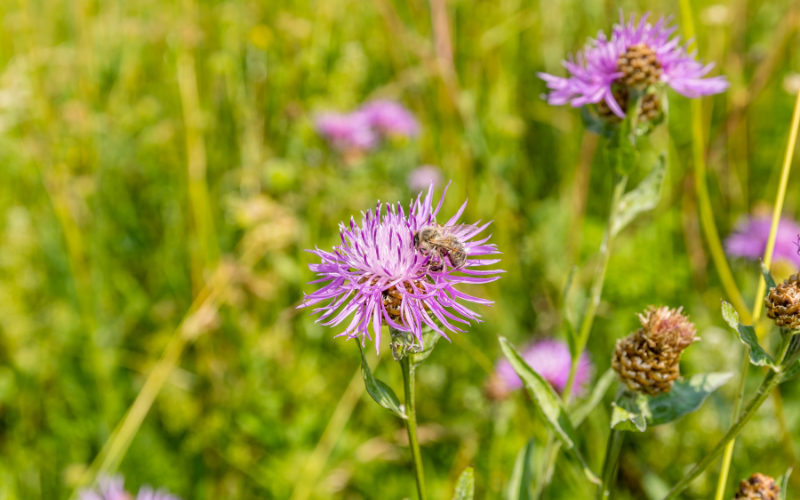
Knapweed is a beautiful flower. It is scientifically known as Centaurea. The flowers come in various colors, including shades of pink, purple, blue, and white.
They are often considered wildflowers and can thrive in well-drained soil and full sun to partial shade. Knapweeds are known for their ability to attract pollinators like bees and butterflies.
| Scientific Name | Centaurea |
| Native Range | Central Europe, east to central Russia, Caucasia, and western Siberia |
| Flowering Season | Summer |
Klondike Cosmos
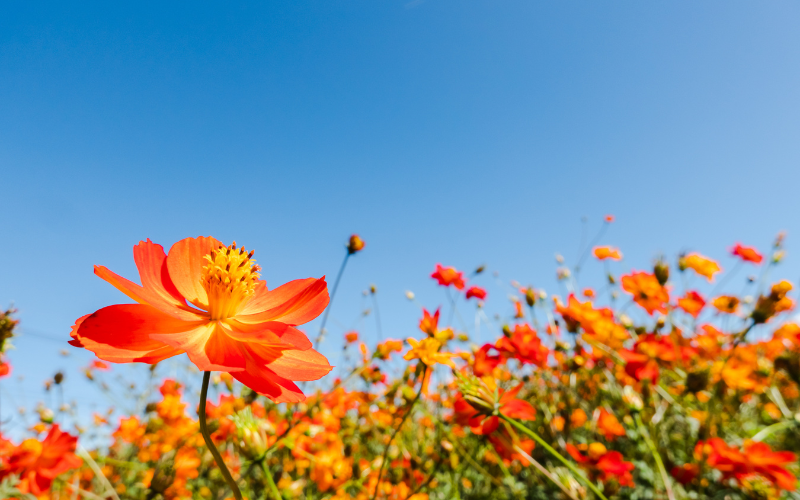
The Klondike Cosmos is a stunning flower. It is also known as Cosmos sulphureus. It is native to North America. It comes in a variety of colors, including white, pink, and deep crimson.
It also requires minimal maintenance and is relatively easy to grow. Klondike Cosmos typically blooms from late spring to fall.
| Scientific Name | Cosmos sulphureus |
| Native Range | North America |
| Flowering Season | Spring, Summer, Fall |
Klasea
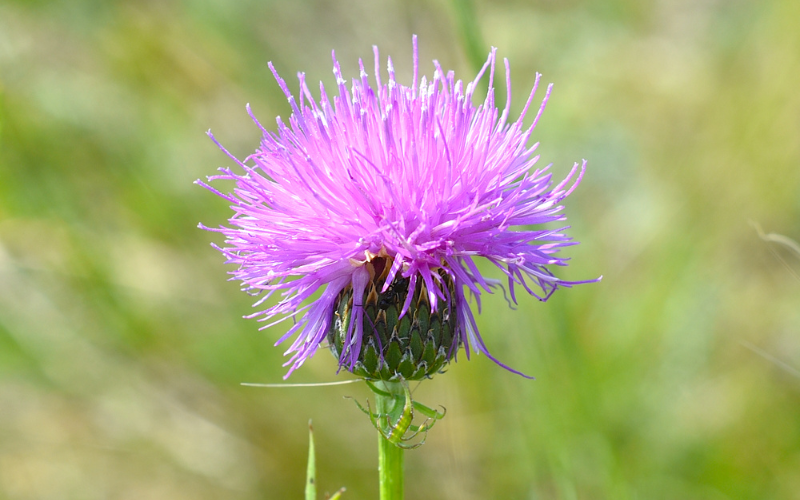
The Klasea flower is a mesmerizing flower. It is also known as Klasea centauroides. It is native to the Mediterranean region. They can be shades of yellow, orange, red, pink, or purple.
They are often considered wildflowers and can thrive in well-drained soil and full sun to partial shade. The Klasea flower is known for its unique and intricate structure.
| Scientific Name | Klasea centauroides |
| Native Range | Mediterranean region |
| Flowering Season | Spring to Early Autumn |
Kinkaku Tree Peony
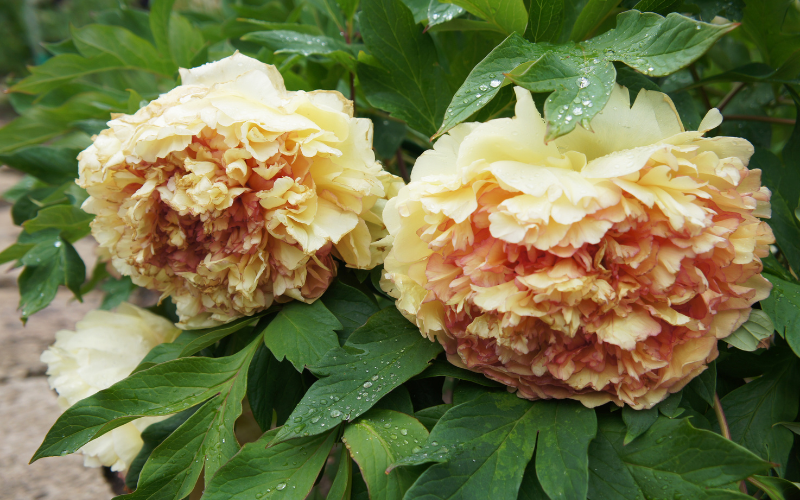
The Kinkaku Tree Peony is a beautiful flower. It is scientifically known as Paeonia suffruticosa ‘Kinkaku.’ The most distinctive feature of the Kinkaku Tree Peony is its stunning golden-yellow to yellow-orange flowers.
The Kinkaku tree peony is a symbol of wealth, prosperity, and good fortune in many cultures. It is bloom occurs in late spring to early summer.
| Scientific Name | Paeonia suffruticosa |
| Native Range | Asia |
| Flowering Season | Spring |
Question & Answer
What is the Indian name for Kalanchoe?
In India, the Kalanchoe plant is commonly known as “Patharchatta” or “Bryophyllum.”
What is a perennial that starts with K?
One perennial flower that starts with the letter “K” is the Kniphofia, commonly known as Red Hot Poker or Torch Lily.
Which flower looks like a face?
Pansies (Viola × wittrockiana) are flowers that are often said to resemble faces.
What flower looks like a brain?
The cockscomb flower, scientifically known as Celosia cristata, is a flower that can resemble the shape and appearance of a rooster’s comb or crest.
Are bleeding hearts flowers?
Yes, bleeding hearts are a type of flower.
